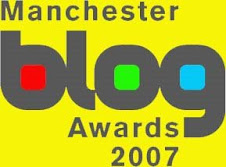A major TV station in Venezuela that opposes President Hugo Chavez will be effectively silenced later tonight, when its broadcast frequency is taken away. Although Venezuelans will still be able to get RCTV's critical news coverage of Mr Chavez on cable, the decision to take its national licence away basically means hardly anyone will be watching.
The Chavez government can point to RCTV's rather questionable actions during the brief, failed coup of 2002. The station backed those trying to overthrow the President, and then broadcast cartoons instead of showing images of demonstrators on the streets of Caracas calling for his re-instatement. Clearly Mr Chavez has wanted to take it down since then, and in that respect it's not too different from Margaret Thatcher's government removing Thames TV's licence following its Death On The Rock documentary about the SAS killings of three IRA members in Gibraltar, which had really put her back up.
However, although this decision might be legal, it's not exactly welcome. Since renationalising his country's vast oil reserves and telling the oil companies to sod off, Mr Chavez has grown increasingly pleased with himself. He's not satisfied with simply being a popular leader of Venezuela - he wants to be the main leader of Latin America and the fiercest international critic of both the US and capitalism. But silencing his critics at home suggests he's worried he's not as popular in his own backyard as we all might imagine him to be. And shutting down opposition voices isn't the sort of thing a heroic man of the people ought to be doing. If he's going to carry on lecturing the rest of the world on how to behave, Mr Chavez should learn to live with the criticism, now matter how unfair he might think most of it is.
Subscribe to:
Post Comments (Atom)




No comments:
Post a Comment